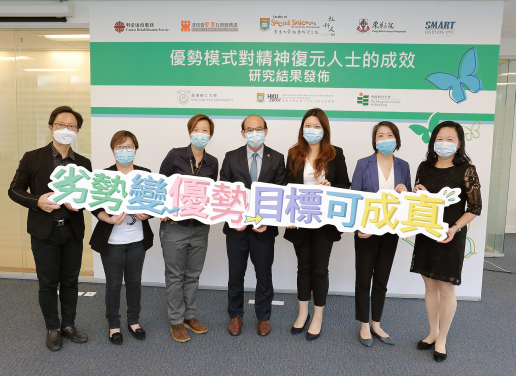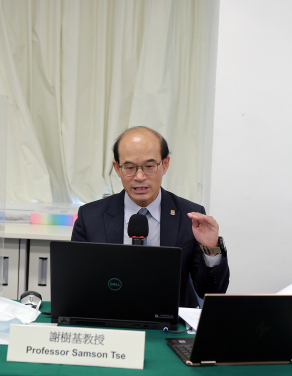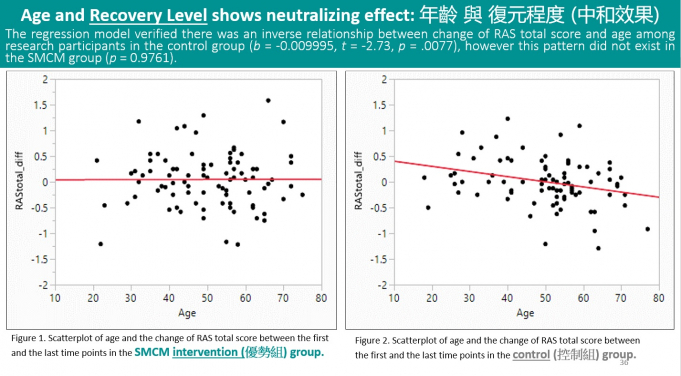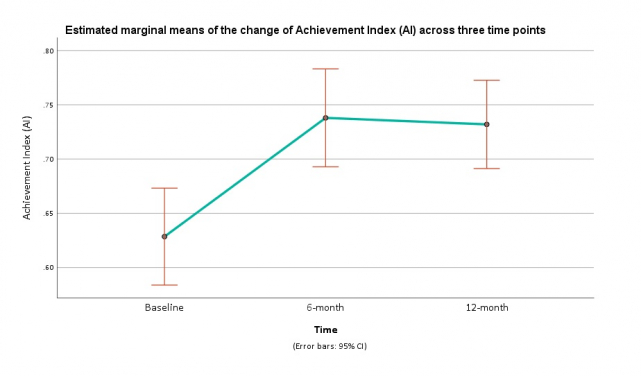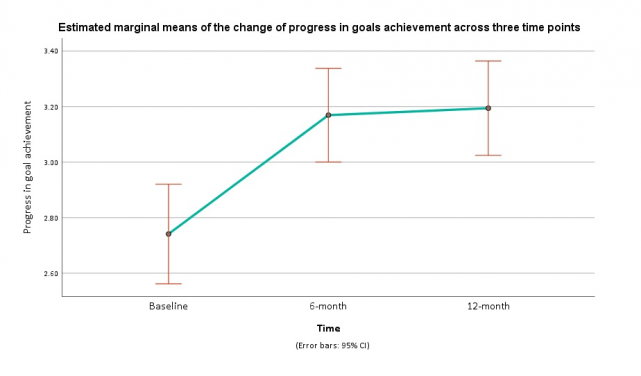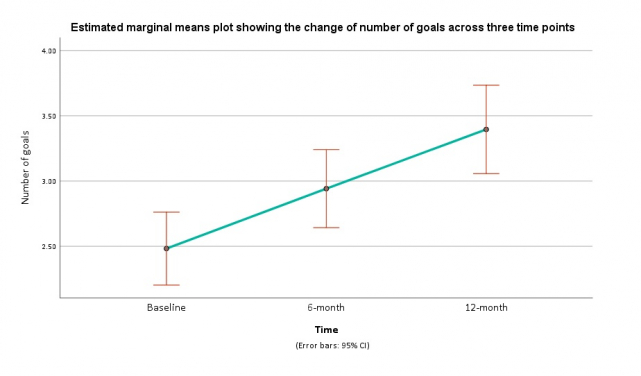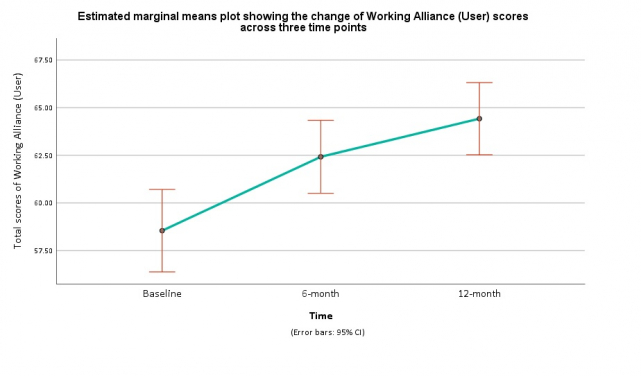Media
HKU-joint study finds strengths-based community interventions scored better than traditional approach in over 60% of the outcomes measuring recovery from mental illness
22 Oct 2020
First Randomised Trial of SMCM in an Asian population
An HKU-joint study led by Professor Samson Tse, Professor of Mental Health in the Department of Social Work and Social Administration on different approaches in psychiatric rehabilitation found that the Strengths Model Case Management (SMCM) implemented in some Integrated Community Centres for Mental Wellness (ICCMWs) in Hong Kong benefits people with mental health problems aged 18-59 years old in making better progress towards their goals, and help those aged 60 or above make better progress in terms of personal recovery and hope, compared to traditional approaches in psychiatric rehabilitation.
Community-based psychosocial services are delivered chiefly through 24 ICCMWs provided by 11 non-governmental organizations in Hong Kong. Through an integrated service mode, the ICCMWs provide one-stop, district-based and accessible community support services to persons with suspected mental health problems, people-in-recovery (PIR), their families/ carer and residents living in the serving district through a single-entry point.
The Kansas model of Strengths Model Case Management (SMCM) is designed to be an alternative to the traditional deficit-oriented approaches in psychiatric rehabilitation. This model has been implemented in some ICCMWs in Hong Kong. Both approaches aim to provide one-stop mental health support services for the community, such as socio-recreational activities and counselling service. Compared with the traditional deficit-oriented approach, the SMCM model, which consists of five key tools: strengths assessment, personal recovery plan, group supervision, field mentoring and fidelity review, focuses more on the clients’ advantages and available resources. Under the SMCM model, health workers can formulate a more structured and directional recovery plan based on the clients’ specific needs, aspirations and goals. They can also monitor the recovery progress more closely to improve recovery outcomes.
Funded by the Government’s General Research Fund of the Research Grant Council, this project aimed to evaluate the impacts of the interventions on service users before and after receiving the community-based psychosocial services, and to assess the effectiveness of SMCM when implemented among mental health clients at ICCMWs using a randomized controlled trial design. Participants included mental health service users at the participating ICCMWs and their caseworkers (e.g., social workers, program workers, nurses).
209 clients from three ICCMWs took part in this mixed method research study using quantitative and qualitative methodologies. They are Chinese adults aged 18 years and above and had some mental health conditions. All participants received a 12-month intervention at the ICCMWs. They were assigned randomly into either SMCM or usual care and support (control group) provided by the ICCMWs.
The participants and caseworkers completed questionnaires before any intervention (baseline), 6 months into the study and after 12 months. The main focus was on the person’s recovery from mental illness; information about socio-demographic information, state of hope, level of symptoms, community mattering, clients-caseworkers working alliance, and goal-related performance was gathered.
Compared to baseline measures, members improved in several domains after going through the 12-month psychosocial intervention and support provided by the ICCMWs. The domains were: Recovery level, state of hope, user-caseworker therapeutic alliance, and goal-related performance such as progress.
Below are the major findings when comparing the results obtained from the SMCM and control groups.
1. Service users benefited from the SMCM intervention in terms of building strong therapeutic alliance with professionals as perceived by caseworkers; and potentially in the area of reliance i.e., user’s acceptance of others (and self), compared with the control group.
2. Research participants at different age groups1 showed different reactions to the SMCM. Young and middle-aged (18-59 years old) ICCMW members were making better progress towards their goals under the SMCM regime compared with the control group by the end of the 12-month intervention.
3. For older adults (60 and above years old; especially those who were less educated) benefited from SMCM interventions in terms of personal recovery and hope; the same pattern was not found in the control group.
4. Middle-aged (40-59 years old) service users in the SMCM group showed improvement in their personal recovery and goal progress, then the rate of improvement decreased gradually. This pattern was not found in the control group.
Overall, ICCMW provides valuable, one-stop shop services to support a person connecting with his/her community, building a trusting relationship with a health worker, and achieving personal goals (e.g., finding jobs, improving one’s wellness).
Comparing the experience of receiving and delivering the SMCM and control group interventions (e.g., therapeutic relationships treatment ingredients) as perceived by service users and workers, it is found that it is better and more effective to focus on a person’s strengths, aspirations, and goals rather than their problems all the time. Medical treatment together with strengths-based community interventions better support a person’s recovery from mental illness.
Workers in the SMCM group with 3.8 years of working experience achieved valued-added intervention outcomes compared to colleagues in the control group with 6.6 years of working experience. This showed that SMCM gives early career workers a professional tool and structure to deliver effective psychosocial services.
With 2020 being the 10th anniversary of ICCMW, Professor Tse said, “We hope the Hong Kong Government will review the mental health needs in the community in view of the pandemic and social divisions and increase funding support in community-based interventions. We also hope the Social Welfare Department funding can continue to support the upskilling of ICCMW staff members and so that small-scale studies can be conducted to adhere to the virtue of evidence-based practice.”
STUDY PARTNERS
- Department of Social Work and Social Administration, The University of Hong Kong
- Department of Counselling and Psychology, Hong Kong Shue Yan University
- Department of Early Childhood Education, The Education University of Hong Kong
- Baptist Oi Kwan Social Service
- Caritas Hong Kong
- Tung Wah Group of Hospitals
- School of Social Work, Indiana University-Purdue University, Indianapolis, IN, United States
- California Institute for Behavioral Health Solutions, Sacramento, CA, United States
For more press materials and photos, please click here.
For media enquiries, please contact:
Ms. Rashida Suffiad, Senior Manager (Media), Communications and Public Affairs Office, HKU
Tel: 2857 8555 / Email: rsuffiad@hku.hk
Ms. Melanie Wan, Senior Manager (Media), Communications and Public Affairs Office, HKU
Tel: 2859 2600 / Email: melwkwan@hku.hk
118-39 year old early adulthood (intimacy, career development and consolidation); 40-59 year old middle adulthood (generativity, meaning seeking and keeping); 60 and above year old, late adulthood (ego-integrity; passing the torch) Ref: Berk, L. E. (2010). Development through the lifespan (5th ed.). Boston, MA: Allyn & Bacon


